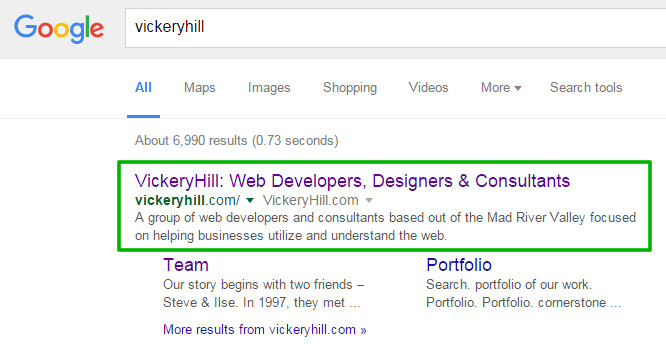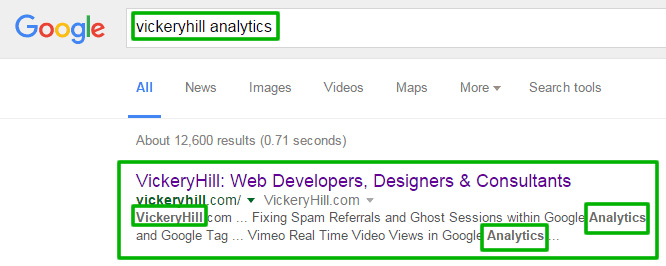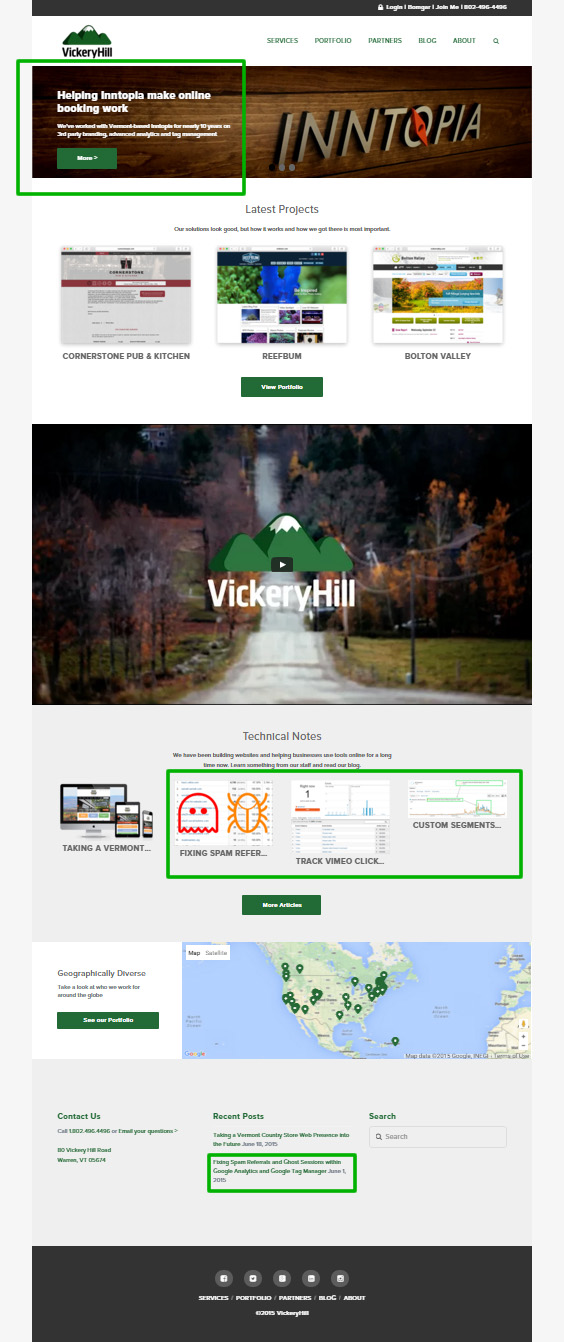Many years ago, a website administrator could control how the website's title and description displayed in Google organic search results by using the meta title and meta description fields.

A few years ago, Google modified its algorithm to incorporate additional content on the site into its search results, provided it is relevant to the search query. Although the website owner lost some control over its display in search engines, these algorithm changes result in better outcomes for users and offer dynamic content in organic Google Search for your website, making it more accessible to a wider range of relevant search queries.
In the second example, you can see the same results (vickeryhill.com/home) displayed in a way that is tailored to match the visitor's search query. Content is pulled from a recent blog post featured on the home page about "analytics."

Below is a screenshot of the content items related to "Analytics" that Google used to determine the relevance of "analytics" and "vickeryhill" in the organic search results above.

Search Results for Your Site From Other Websites?
That's right. We were all astonished to discover that this was possible. However, it makes sense when you consider Google's business philosophy, which begins with the following practice:
"(continued)…Since the beginning, we've focused on providing the best user experience possible. Whether we're designing a new Internet browser or a new tweak to the look of the homepage, we take great care to ensure that they will ultimately serve you, rather than our own internal goal or bottom line. Our homepage interface is clear and simple, and pages load instantly. Placement in search results is never sold to anyone, and advertising is not only clearly marked as such, it offers relevant content and is not distracting. And when we build new tools and applications, we believe they should work so well you don't have to consider how they might have been designed differently."
In layman's terms, if you don't have strong meta titles and descriptions, and your page content is heavily image-based and lacks sufficient written content in terms of
,
, and
tags, Google effectively says, ‘That’s weak, but your website is clearly the top result based on other authoritative metrics. What else can we offer in those search results to enhance the user experience for the person who just searched? Oh, I see 200 websites all consistently stating something relevant about the authoritative website regarding the search term they requested; let’s display that instead of your website’s lackluster meta content.'
We adhere to our fundamental rule of thumb – CIKASS – Content Is King, Authentic Stories Sell. Of course, it’s still important to include relevant meta titles and descriptions on your site, but the content itself matters now more than ever. Write what the intended visitor wants to hear. Share authentic stories. Be the ball, Danny.
We agree with Google's practices in this regard: visitors come first, and authority will naturally follow with the success of your online presence.
